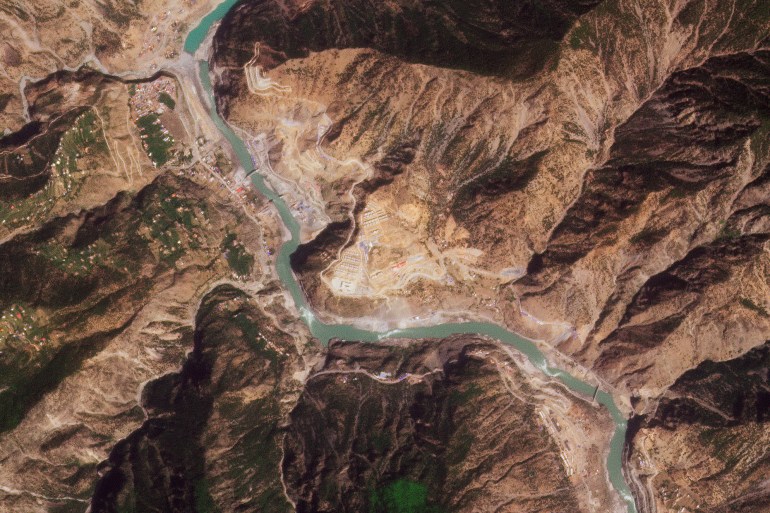The Chinese national working at a hydropower project denies the allegation levelled by his co-workers.
The man, identified only as Mr Tian in the official police complaint, denied the accusation levelled by his co-workers during his court appearance in the city of Abbotabad on Monday evening.
Tahir Ayub, a local police official, confirmed to Al Jazeera on Wednesday that the accused was taken into custody as authorities investigate the incident.
Blasphemy is a sensitive subject in Pakistan, a Muslim-majority country where those found guilty could be given the death penalty for certain forms of the crime.
The Chinese national, who works as head of heavy transport at a major hydropower project, was accused on April 15 of insulting Prophet Muhammad for allegedly urging workers to speed up their pace of work as they took a prayer break.
The Dasu hydropower project in the Kohistan district of northwestern Pakistan’s Khyber Pakhtunkhwa province is being built by the China Gezhouba Group Company.
The police report into the incident said the man made insulting remarks and gestures criticising God and Muhammad.
The allegation caused a large protest by residents who blocked the Karakoram Highway, which links Pakistan to China, and demanded the arrest of the accused.
Naseeruddin Khan, a police official in Dasu, said an investigation team has been formed to establish the facts.
“We are talking to the accused’s interpreter, who made the accusations, as well as other protesters,” Khan told Al Jazeera.
He said the work on the hydropower project continues without any issues.

The Chinese embassy in Islamabad has yet to comment on the case, but a spokesperson for the Chinese Ministry of Foreign Affairs said on Tuesday that it is “verifying the information.”
“The Chinese government always asks Chinese nationals overseas to abide by laws and regulations of the host countries and respect local customs and traditions,” Wang Wenbin said during a news conference. “If the incident involves Chinese nationals, our embassy will provide consular protection and assistance within the purview of its duty.”
While Pakistan has never officially executed anyone facing blasphemy charges, numerous people over the years have been lynched by outraged individuals and mobs over such allegations or for expressing opposition to the harsh laws. Since 1990, more than 80 people have been killed in such violence.
In 2021, a Sri Lankan factory manager was beaten to death in Sialkot, a city in the central province of Punjab, by his co-workers who accused him of committing blasphemy.
In 2011, the former governor of Punjab, Salman Taseer, was shot dead by his own security personnel for expressing support for a woman accused of blasphemy. Three years later, human rights lawyer Rashid Rehman was killed for representing a university professor accused of making blasphemous comments.
China is one of Pakistan’s vital allies and the two countries are collaborating on a $60bn infrastructure project known as the China-Pakistan Economic Corridor.
In recent years, there has been a growing number of attacks against Chinese nationals in Pakistan with Beijing repeatedly asking Pakistani authorities to ensure security for its citizens and Chinese facilities in the country.
The Dasu hydropower project itself has faced delays in the past.
At least 13 employees working on the site, including nine Chinese citizens, were killed in a suicide bombing in 2021. The attack led to the suspension of work on the project for six months.
This month, a fire ripped through the storage camp at the site.
